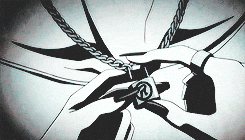- VerseTaku
- Posts
- Frank Ocean's 'Blonde' and 'Nana': Stories of Love and Loss
Frank Ocean's 'Blonde' and 'Nana': Stories of Love and Loss
In the realm of evocative storytelling, certain works stand out for their meticulous dissection of human experiences. Frank Ocean's introspective masterpiece 'Blonde' and Ai Yazawa's gripping manga series 'Nana' are two poignant narratives that, while emerging from different artistic disciplines, converge on themes of love, identity, and the inexorable sensation of loss that often accompanies deep human connection.

Exploring Shared Themes
Both 'Blonde' and 'Nana' navigate the choppy waters of young adulthood — a life phase fraught with romantic entanglements, self-discovery, and the inescapable shadow of parting. In 'Blonde', Frank Ocean muses over past relationships and the ephemeral nature of memory, while 'Nana' dissects the trajectories of two women, their bonds, their agonies, and the crisscrossing paths of an ensemble cast, all grappling with their own emotional tapestries.
"We'll never be those kids again." – Frank Ocean, "Ivy"
This lyric mirrors the underlying sentiment in 'Nana', as the characters come to terms with the inevitable transition from idealistic youth to complex adulthood, often leaving pieces of their hearts and dreams tucked in the folds of yesteryears.
Dissecting Artistic Expression
Frank Ocean's lyrical prowess intertwined with haunting melodies creates an atmosphere that allows listeners to sink deep into their own retrospection. The minimalistic yet rich production on tracks like "Self Control" and "Seigfried" perfectly encapsulates the tension between wanting to hold on and the necessity to let go — a feeling both Nanas know all too well.
In 'Nana', the vivid illustrations and the dynamic progression of narrative art communicate emotions at a glance, often without the need for words. Yazawa's ability to draw readers into the psyche of her characters parallels Ocean's adeptness at painting vivid emotional landscapes, leaving audiences with a lingering sense of intimacy and understanding.
Emotional Resonance and Community Impact
Both 'Blonde' and 'Nana' have left indelible marks on their respective audiences, sparking conversations around their deeply human depictions of love's complexities. Admirers of each unearth solace in these works, often citing them as cathartic experiences that assist in processing their own grief and nostalgia.
"Wish I could turn back time to the good old days." – 'Nana'
Similarly, Frank Ocean's listeners find themselves transported to moments frozen in their own timelines, highlighting the universal nature of the stories unraveled within 'Blonde'.
Interweaving Lyrics and Dialogue
Ocean's lyrics like, "I thought that I was dreaming when you said you loved me," echo the tender vulnerabilities expressed within 'Nana':
"Even if we could turn back, we'd probably never end up where we started." – Ai Yazawa, 'Nana'
The conciseness and potency of these words bridge the gap between music and manga, enriching the narratives and offering a space for reflection on the volatile yet precious nature of human connections.
Concluding on Artistic Intersections
The artistic convergence of Frank Ocean's 'Blonde' and Ai Yazawa's 'Nana' suggests that music and manga are not merely vehicles for entertainment, but profound portals to examine the resonant chords of our lives. Fans of either medium can not only see fragments of their own experiences reflected but also gather insights on the transformative power of embracing love and the bittersweet beauty of embracing loss.
As we juxtapose 'Blonde' with 'Nana', we find that these meditations on heartache and hope serve as reminders of art's enduring capacity to connect us — to each other, to our pasts, and to the unspoken depths of our beings. This comparison is not just meaningful; it is essential in understanding the human condition and the multitude of ways we interpret and express it.